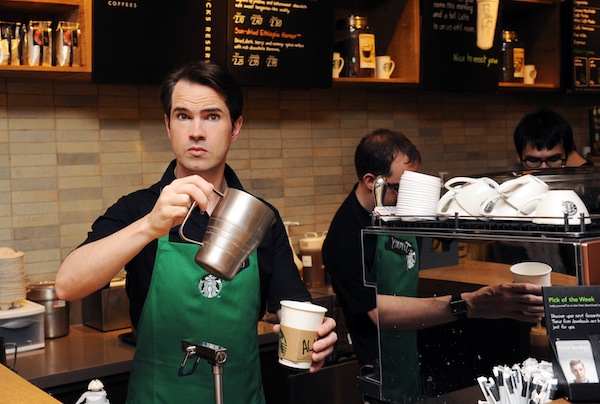Danny Alexander might be glad that a PR panic before the Public Accounts Committee published its report into HMRC and the ability of multinational companies to avoid paying their share of corporation tax means he could be able to visit a Starbucks again in the near future. But his remarks on Radio 4 this morning show what a mess our tax system has got into. As PAC chair Margaret Hodge observed on Radio 5Live, there is now ‘a danger that corporation tax is becoming a voluntary tax’, and the Chief Secretary to the Treasury’s remarks did little to diminish that impression. Alexander said:
‘I think what I’d say is, look, if any company wants to come to see HMRC to say we think we might be paying too little tax and we want to pay a little bit more and we think we owe a little bit more within the law, then of course, that is a good thing, but there are millions of small companies up and down this country who pay the proper amount of tax, day in, day out, who think like I do, that at a time of economic pressure, that at a time of austerity, it is vitally important that everyone pays the right amount of tax, because to be honest, if everyone else paid the right amount of tax, then everyone else could pay a little bit less.’
This all sounds very cosy, doesn’t it? That if a finance director of a multi-national company suddenly has a burst of altruism, they can pop along to HMRC, and, over a latte, they can discuss paying a bit more money to the exchequer. Starbucks’ announcement at the weekend was simply that it was going to hold meetings with HMRC about the level of tax it was paying currently. But tax doesn’t work like the National Blood Service, relying on the goodwill of generous volunteers, and it shouldn’t feel voluntary for a company to pay its full share of tax. Neither should it rely on the moral fury of Starbucks customers boycotting the chain’s gingerbread lattes, or Margaret Hodge turning off her Kindle in protest at Amazon’s tax arrangements.
And this is why the PAC’s report was as scathing about the way HMRC functions as it was about the way companies like Starbucks, Amazon and Google manage their affairs. The MPs believed it was ‘unclear whether HMRC has the necessary resources or are devoting the time and effort to collect the appropriate level of tax’. The report added:
‘HMRC needs a change in mindset in the way it approaches collecting tax from multinationals. At the moment there is a pervasive acceptance of the status quo by the top officials in HMRC and we have seen little evidence of a desire to be more assertive. For example, it is perplexing that, on transfer pricing HMRC consider a royalty fee of 6 per cent or 4.7 per cent can be competitive when the company involved consistently makes a loss. We expect HMRC to prosecute multinational companies who do not pay the tax due in the UK.’
The evidence that HMRC gave to the committee was not, as Coffee House reported at the time, particularly impressive. The report said ‘HMRC were unconvincingly positive’ and the department was ‘too passive in its approach’ to the Tax Gap – the difference between the amount of money the department believes it is owed and the amount that is actually collected.
Alexander did also say the government plans to ‘put more resources at the disposal of HMRC to make sure that they have the ability to get under the skin of what it is that companies and rich individuals too are doing in the tax system’. There is also a stated determination by the government to push G20 members to work together to tackle the profit-shifting activities of multi-national companies. But, like the Jimmy Carr case, reports like this will also add to the case advanced by tax campaigners that there needs to be a simplified tax system in the UK so that big companies can’t wield the might of what John Humphrys called ‘fancy accountants’ to avoid paying their share.







Comments